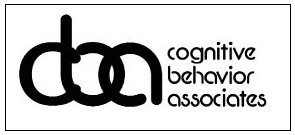Human beings are incredibly complex creatures. We lead busy lives where we’re expected to be social, professional, and competent all the time. That is a lot for anyone to handle, and the truth is that we all have moments where it’s just too much. Unfortunately, there are real medical factors that can exacerbate those stressors. Often leaving some of us with mental health conditions that make normal life more difficult, if not impossible. But you should never be ashamed to ask for help.
Now, there is definitely a stigma surrounding mental illness, but we are beginning to see it break down. People are fighting harder than ever to destroy the assumptions and misconceptions that gave rise to the stigma in the first place. Between social change and improved psychological medicine, there is real, effective help available to the people who need it.
Addressing Your Own Assumptions
As available as help is, it isn’t always easy accepting it. There are still many cultures that prop self-reliance up as a gold standard of human behavior. Help is characterized as negative to the detriment of everyone who feels that way. The truth is that everyone benefits from help. We are a social species by nature. We function in collective societies. Help is literally built into the way we think, work, and live. If we deny ourselves the help offered by others, then we fail to reach our full potential.
The same logic applies to asking for help when you’re struggling with mental illness. No one is saying you can’t handle it yourself. There are plenty of people that find ways of coping, but they aren’t as efficient. You may not initially like the idea of asking for help, but it is what you have to do if you want to make progress. As with any other project, your mental health is better off if you entrust experts that sincerely want to help you.
Asking for Help
Requesting help can take many different forms. Many people with mental illnesses find that a multi-directional approach works best. Self-awareness, social support, medication, and therapy work together to provide the structure and the vocabulary necessary for dealing with mental illness. Cognitive behavior therapy specialists work to help you combine real-world factors with the medicine and psychological counseling that you need to understand your condition and assert yourself.
What is Cognitive Behavior Therapy?
CBT is almost as complex as the human psyche. It involves asking yourself deep-seated questions directed at the insecurities and fears that form the basis of your condition. Therapists trained in cognitive behavior therapy then help patients to unpack the falsehoods that they tell themselves while teaching them to recognize the triggers that precede their worst symptoms.
To put it simply Cognitive Behavior Therapy treatment explained is a highly trained network of people who want to see you thrive. It’s never easy. Some patients have spent years struggling to achieve something resembling the normalcy they remember, but with the help of the expert staff at Cognitive Behavior Associates mental health patients have a real chance to take their lives back.
Overcoming the Final Hurdle
It’s not easy, and everyone has their own definition of normal. However, CBT is one way people choose to address the mental health issues that impact their lives every day. If you have questions about cognitive behavior therapy, reach out to Cognitive Behavior Associates for more information. If you’re in a crisis situation, get a ride to the nearest hospital or contact the national Substance Abuse and Mental Health Services Administration at 1-800-662-HELP.
When in doubt, trust in the people who are close to you. They won’t always understand what you’re going through, but they can show you just how much you matter to them and the people around you.

